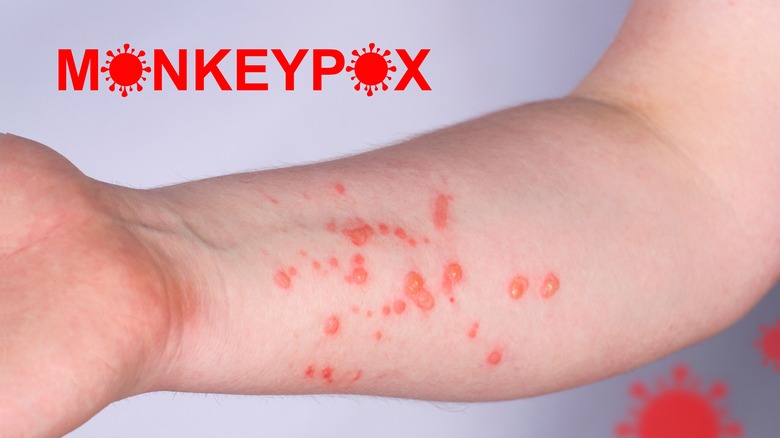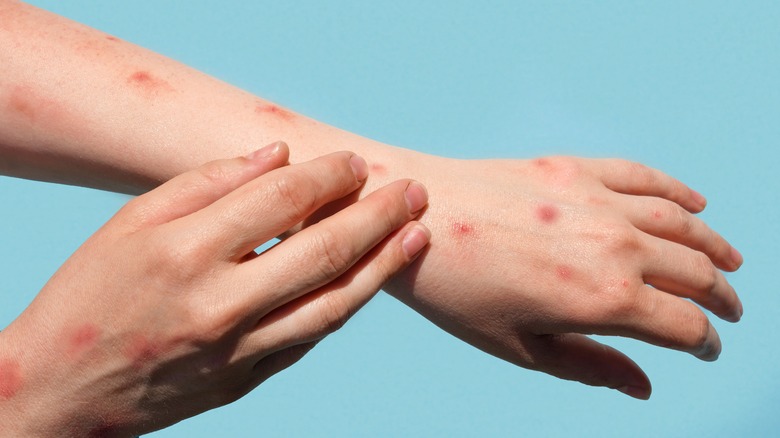What Is It Like To Have Monkeypox?
Monkeypox is a rare virus that generally results in pus-filled bumps on the skin. The Centers for Disease Control and Prevention reports that it begins with a fever, headache, muscle aches, chills, and fatigue. According to Cleveland Clinic, swollen lymph nodes are a symptom specific to monkeypox versus other poxes. Those infected will eventually develop a rash that spreads over the body. The rash turns into bumps that go through various stages before turning into blisters and falling off. Monkeypox can last anywhere from two to four weeks, and while it is milder than smallpox, 10% of reported cases are fatal.
The disease was discovered in Africa in the 1950s in a group of research monkeys (via Cleveland Clinic). But now, monkeypox has spread to other countries worldwide, and rodents and squirrels are also suspected virus carriers. Humans who come into contact with infected animals can catch it. Humans can also transmit monkeypox to others through close contact, body fluids, and contaminated materials. It can spread through respiratory contact or contact that is close and prolonged.
Monkeypox blisters can be painful
Dr. Kurt Zaeske, a veterinarian who contracted the disease during the monkeypox outbreak in 2003, told NBC News that his symptoms were "very much like the flu." He said along with a fever and fatigue, he was dizzy and nauseated. Then, blisters began forming on his body and one developed on his thumb that he described as "quite painful." Before he knew he had monkeypox, he was concerned for his health and even afraid that he might lose his thumb to some "exotic disease." Experts traced the source of the infection to a sick prairie dog Zaeske treated. Thankfully, none of Zaeske's family members became infected, and he recovered after receiving antibiotics.
While there is no known cure for monkeypox, an antiviral for smallpox can treat symptoms. Other antiviral drugs might be helpful, but more studies are needed. Cleveland Clinic reports that most people recover without treatment. Precautions include avoiding contact with sick or dead animals, including bedding, or other materials they may have had contact with. You should also wash your hands and avoid people who may be infected.

